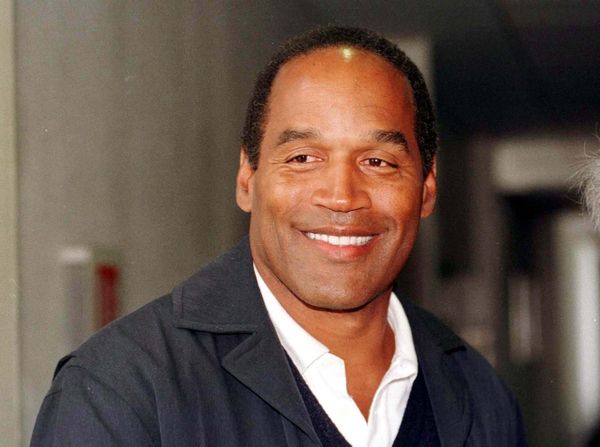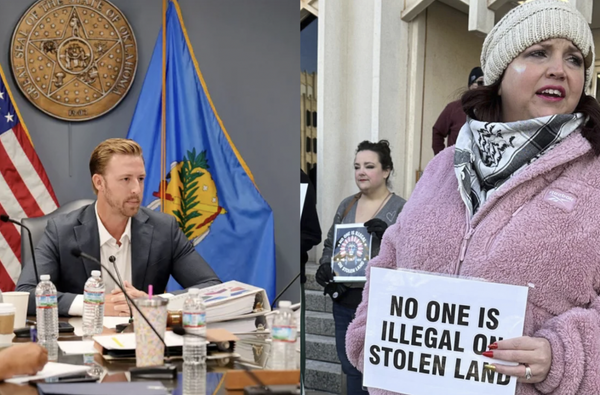
In just a few days, on December 7, the Supreme Court will consider a case that could have dire implications for American democracy, Moore v. Harper.
Moore concerns the “independent state legislature” theory: the idea that the Constitution grants state legislatures some level of special authority in administering federal elections that may not be constrained by state courts or perhaps even state constitutions. The idea is, to put it mildly, contested. The conservative jurist J. Michael Luttig, who recently signed on as co-counsel for litigants opposing the independent state legislature theory in Moore, has argued in The Atlantic that Moore represents “the most important case for American democracy in the almost two and a half centuries since America’s founding” and cautioned that the theory is a key part of “the Republican blueprint to steal the 2024 election.” Former Attorney General Eric Holder warned that, depending on how the Court rules, Moore could pose “an existential threat to our democracy.”
Over the past several months, both the litigants and outside parties—known as amici curiae, or “friends of the court”—have filed a mountain of briefs hashing out these issues. These amicus briefs preview how much disruption the independent state legislature theory could really create. But more than that, they reveal a legal landscape in which once-wild arguments have suddenly entered the mainstream—a landscape transformed by Donald Trump, not just through his reshaping of the federal judiciary but also through his influence on the ideas that are burbling up. Moore v. Harper may not be about Trump, but it is of his making.
At the center of Moore is a ruling by the North Carolina Supreme Court throwing out an aggressively gerrymandered congressional map put together by the state’s Republican legislature, which the court found violated the state constitution. The GOP lawmakers are now challenging that ruling before the Supreme Court, arguing that, under the independent state legislature theory, the state court lacked the authority to involve itself in the legislature’s work.
The reason has to do with just a handful of words in the U.S. Constitution. State governments administer federal elections as well as state races: During the recent midterm elections, for example, Pennsylvania voters selected their choice for U.S. senator on the same ballot that they used to cast their vote for the state’s governor. That’s because the Constitution gives states the power to decide how they select members of Congress and pick presidential electors.
Proponents of the independent state legislature theory build their argument around the fact that the specific constitutional text in question refers not to states generally, but instead to “the legislatures thereof.” Thus, they argue, when administering federal elections, state legislatures are, to some extent, exempt from normal constraints; under this theory, other state-level entities, such as courts and election officials, would be restricted in their ability to check the legislature or act without its approval. (Importantly, these checks would still apply to the legislature’s administration of state elections.) Moore involves only the constitutional language concerning the selection of members of Congress, but a Supreme Court ruling adopting some iteration of the independent state legislature theory could shape how federal courts understand state administration of presidential elections as well.
In its modern form, the first hint of the independent state legislature theory arrived on the scene in a concurrence by Chief Justice William Rehnquist in Bush v. Gore. Weighing the constitutionality of the 2000 Florida recount, Rehnquist suggested that the Constitution’s “legislature thereof” language might constrain how Florida courts interpreted the state’s election law: “The text of the election law itself” as written by the legislature, Rehnquist argued, “and not just its interpretation by the courts of the States, takes on independent significance.” The theory then vanished from the Supreme Court’s jurisprudence for two decades, until popping up again in a string of concurring and dissenting opinions from conservative justices in litigation over pandemic voting measures adopted in advance of the 2020 election. Since then, legal scholars have produced a flood of new research calling into question the theory’s historical basis. The overwhelming conclusion is that, as the law professor Evan Bernick wrote in an amicus brief, the theory is “completely foreclosed by the Elections Clause’s drafting history and early state practice”—not to mention “two hundred years of consistent state constitutional regulation of federal elections.”
The theory, to the extent that judges and scholars have sketched it out, can be hard to pin down, in part because there are so many variations. Under what some scholars have termed the “maximalist” interpretation, state constitutions wouldn’t be able to impose any substantive constraints on the legislature at all. State courts would have no power to protect against legislative intrusions on voting rights or—as in North Carolina—congressional gerrymanders that advantage one political party over the other. Because the Supreme Court has, in recent years, sharply limited the federal judiciary’s power to protect against these antidemocratic manipulations, voters could be left with little recourse in either state or federal courts.
But the potential fallout might not end there. In its amicus brief opposing the North Carolina legislators, the ACLU notes that a maximalist interpretation of the theory might invalidate election reforms initiated directly by voters rather than through the legislature, such as the recent adoption of ranked-choice voting in Alaska. Briefs filed by law professors, election administrators, and state officials alike warn that the maximalist theory could potentially require states to develop different systems for administering state and federal elections, resuscitate laws previously struck down by state courts, and forbid the everyday decision making by election officials that’s required for voting to run smoothly. The result, writes one group of current and former election administrators, would be “chaos.” In a presidential election, the theory could arm losing candidates or dyspeptic state officials with legal arguments to challenge aspects of election administration and dispute results.
At points, the brief filed by the Republican North Carolina legislators seems to adopt this maximalist approach. Similar endorsements of the maximalist view come from amicus briefs filed by two groups with ties to grandees of the conservative legal movement: the Honest Elections Project, linked to the former Federalist Society head Leonard Leo, and Restoring Integrity and Trust in Elections, a project co-founded by, among others, the Republican strategist Karl Rove and former Attorney General Bill Barr. Likewise, an amicus brief filed by the National Republican Redistricting Trust, which led GOP efforts to strengthen the party’s hand during the 2020 redistricting, argues that the Constitution provides state legislatures with “near total control over the substance of decisions” concerning the administration of congressional elections.
But the Supreme Court’s options are not all or nothing, either a full embrace of the maximalist independent state legislature theory or a total rejection of it. For one thing, the Court doesn’t necessarily need to address the independent state legislature theory at all in Moore. Two briefs by scholars argue that a federal law already on the books establishes that state courts and constitutions may play a role in the redistricting process—which would mean the North Carolina Supreme Court’s intervention was legally sound.
For another, the spread of amicus briefs supporting the theory provides a wide range of potential options for a less maximalist vision. At points, the North Carolina lawmakers suggest that the problem is not that the state supreme court struck down the congressional map, but that it did so on the basis of “vague constitutional provisions.” According to this understanding of the theory, state courts would still have some power over state legislatures, but they couldn’t overrule the legislature without specific text in the state constitution to back them up. An amicus brief filed by 13 Republican attorneys general similarly argues that “courts may override legislative decisions only if there is a federal or state statute or constitutional provision that speaks clearly to the matter.” Or perhaps, as Republican lawmakers in the Pennsylvania legislature suggest, the independent state legislature theory might allow a role for state courts but limit judges’ discretion in responding to legal violations.
Weaker iterations of the theory might seem attractive as a compromise position—but in practice, they would be difficult to administer. Just what counts as the legislature or the state constitution “speaking clearly”? How far is too far in extrapolating from the text of a statute or constitutional provision? An amicus brief filed by the Conference of Chief Justices, a group representing the leaders of state supreme courts across the country, warns that this “uncertainty will lead to disruptive litigation as state courts attempt to discern in expedited election-related proceedings which provisions they must disregard.” The chief justices, who filed their brief in support of neither party, instead propose an approach under which federal courts could intervene on state courts’ judgments only in the most limited circumstances. Likewise, the Justice Department argues that federal courts should weigh in “only when a truly aberrant interpretation of state law undermines a significant federal interest.”
However much chaos the independent state legislature theory might cause, though, none of the several iterations under consideration by the Supreme Court would give state lawmakers the legal authority to simply overturn election results they disliked. The Constitution still constrains state legislatures, and efforts by lawmakers to upend the counting of ballots would violate the due-process and equal-protection clauses. When it comes to presidential elections, a state legislature’s effort to pick a new slate of electors after the date established by Congress as Election Day—say, by swapping out a lineup of electors reflecting the state’s popular vote for Joe Biden in favor of electors supporting Donald Trump—would also violate a constitutional provision granting Congress the power to set the deadline for the appointment of electors.
Reading the commentary of election-law experts on Moore, you get the sense that they’re somewhat exhausted by having to continually explain that the independent state legislature theory is not a just-add-water recipe for a coup. Yet the idea has proved difficult to shake in the public commentary around Moore, perhaps because Trump’s attempted coup in 2020 depended in part on a bizarre overextension of the theory. John Eastman, the legal scholar advising Trump on the president’s efforts to overturn the election, proposed in a now-notorious memo that the Constitution provided legislatures in swing states with the power to simply toss out Biden electors in favor of slates supporting Trump. Eastman himself has filed an amicus brief in Moore, though it is far less outrageous—adopting the maximalist view of the independent state legislature theory instead of his previous, even more extreme interpretation.
The likelihood that the Supreme Court will adopt Eastman’s 2020 approach—what the law professors Leah Litman and Kate Shaw deem the “‘state legislature as the end of democracy’ theory”—is essentially nil. Indeed, in their reply brief, the North Carolina legislators deny what they term the “scurrilous suggestion” that their argument would provide grounds for an Eastman-style rewrite of the electoral process. But the election-law expert Rick Hasen has warned that “a muscular reading of the independent state legislature theory would provide a fig leaf for state legislators to try to reverse presidential election results and overturn the will of the people in a presidential election.” Hopefully, the judiciary would step in to stop such an abuse of power—but there’s a risk that the Supreme Court might “conclude it is a political question the courts can stay out of,” Hasen told me over email.
And a Supreme Court ruling endorsing some version of the independent state legislature theory in Moore could provide a GOP legislature with legal-sounding cover for such a ploy, even if the theory itself wouldn’t actually bear that weight. Hasen’s own amicus brief—along with briefs filed by the longtime Republican election lawyer Benjamin Ginsberg and a group of conservative lawyers led by a well-respected former judge, Thomas Griffith—warns that a flood of federal litigation challenging actions by election administrators as unconstitutional might create an environment of confusion and distrust that could fuel bogus claims of election irregularities. If the Court adopts the North Carolina legislators’ vision of the independent state legislator theory, Ginsberg wrote, “the credibility of the electoral system” will be a “guaranteed casualty.”
Any state-level effort to upend the 2024 presidential election on the basis of an exaggerated interpretation of the independent state legislature theory would depend, in part, on the fact that the theory is difficult for laypeople to understand—and therefore open to distortion. This complexity has shaped public discussion around Moore as well. Evaluating the potential danger posed by the case requires pulling apart a series of interlocking questions: Is the independent state legislature theory correct as a matter of law? What kinds of effects would the theory have if implemented in good faith? How could the theory be employed by bad-faith officials looking to get away with something? And would the federal courts intervene to stop them?
The picture is not entirely bleak. The results of the 2022 midterms substantially limited the ability of election deniers to upend the 2024 presidential vote: Swing-state voters rejected Trump-backed candidates for governor and secretary of state who had expressed a willingness to meddle with elections going forward. And if the lame-duck Congress can pass reforms to the Electoral Count Act, the statute that governs Congress’s certification of the electoral vote and that Trump sought to exploit on January 6, this would close off avenues for rogue state legislatures operating under an extreme understanding of the independent state legislature theory to disrupt the 2024 certification.
Still, Moore is a reminder of just how wobbly the guardrails protecting American democracy have become. “So important!” Trump wrote of Moore recently on Truth Social. “Supreme Court can save our country.”







